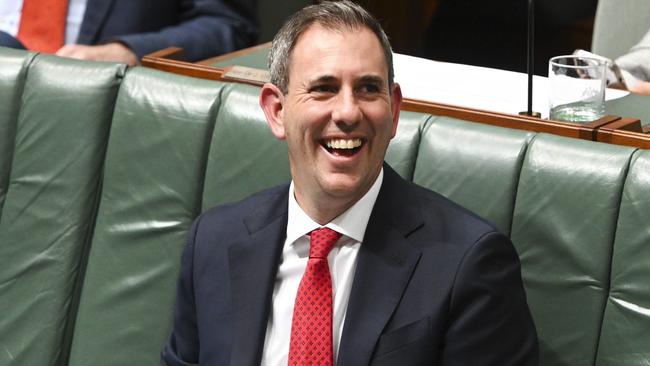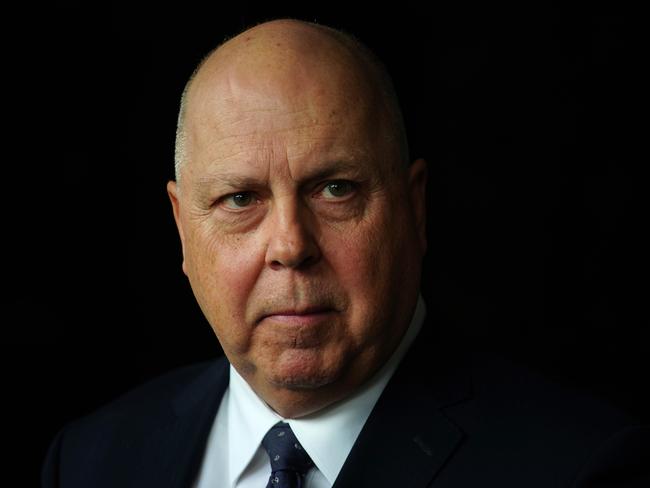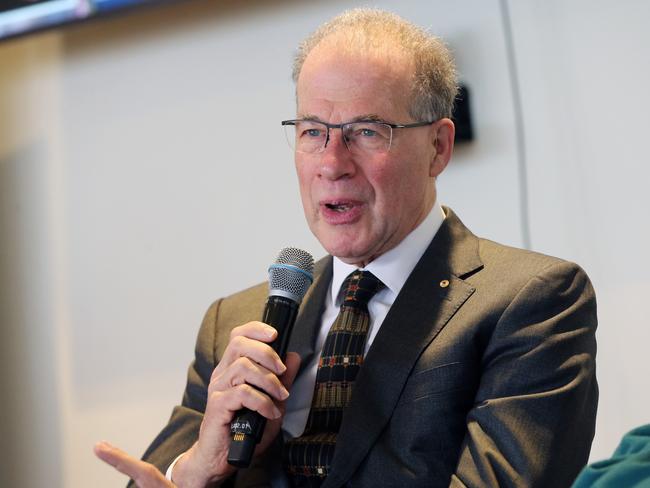States hold Albanese government to ransom over NDIS changes
There are growing signs a state-federal deal to reform the National Disability Insurance Scheme will be held up by negotiations over a new GST agreement.

The states will hold the Albanese government to ransom over proposed changes to bring the cost of the $42bn National Disability Insurance Scheme under control by insisting a new GST revenue deal is struck first.
In growing signs that an agreement to revamp the increasingly costly NDIS will not be done by the time national cabinet sits next week, state treasurers have explicitly tied a $5bn-a-year GST allocation commitment to progress on NDIS reform.
The Australian understands the federal government will table a deal for states and territories to consider despite the GST impasse, potentially through a broader health funding arrangement that covers some of the additional state-funded cost of services for people with disability.
But a communique issued by the states after a meeting of federal and state treasurers in Brisbane on Friday notes the ongoing NDIS reform discussions before adding “the GST no-worse-off guarantee needs to be resolved before any states and territories can consider any proposals for change”.
The communique says the 2018 GST deal included a “no worse off” provision that the states want extended, otherwise they will face a $5bn-a-year loss, and growing.
After the meeting, Victorian Treasurer Tim Pallas said a “long journey” lay ahead before the states would be willing to progress key federation issues, including the NDIS, and Jim Chalmers, had to come to the party.

“We’ve told the Treasurer the (no-worse-off guarantee) is a threshold consideration for the states,” Mr Pallas said.
“We need that as a demonstration of good faith that we can work together on some of the other substantial problems that the commonwealth confronts, most notably the NDIS.”
He said the NDIS was primarily a commonwealth responsibility, and while the states were prepared to support broad design changes proposed by an independent review of the scheme, “we are very concerned with any suggestion that the states will basically be there picking up some of the liability of the NDIS”.
That liability could be “substantial”, Mr Pallas said, noting that “preliminary, back of the envelope” modelling he had seen on the potential cost impact of the NDIS review recommendations ran into the “billions of dollars”.
Despite the federal government putting out a separate communique to the states, the federal Treasurer said conversations about the GST allocation had been “constructive” and would continue in coming weeks, including at national cabinet.
“The cost to the commonwealth of the GST no-worse-off guarantee has substantially increased since the original deal was put in place, and any extension would have significant fiscal implications for the commonwealth,” Dr Chalmers said. “Any developments on GST need to recognise the pressure on all our budgets, not just on state budgets.”
The current GST deal runs through to 2026-27, and will be reviewed by the Productivity Commission in 2026. Dr Chalmers said the deal was expected to cost the commonwealth $27bn more than originally anticipated. The Treasurer has previously said the government is not prepared to change the arrangements until the delivery of the PC review.
Like the GST, the NDIS has become an increasingly thorny fiscal problem for the federal government. Dr Chalmers has said it is one of his key budget concerns. This year the scheme is expected to cost about $42bn, and currently has 630,000 participants. The scheme is currently funded two-thirds by the federal government and the rest by the states, though the federal share is growing.
With cost projections forecasting the NDIS could blow out to more than $100bn a year and have more than a million participants within a decade, national cabinet stepped in last April to set a cost growth target of 8 per cent by 2026, substantially lower than recent years averaging 14 per cent growth. Hitting that target could save as much as $60bn over the coming decade.
National cabinet’s decision to impose a cost growth target came after NDIS Minister Bill Shorten commissioned an independent review of a scheme that he described as having “lost its way’ and in need of a reboot.

The review, co-chaired by disability advocate Bruce Bonyhady and former senior bureaucrat Lisa Paul, handed its final report to state and federal governments in late October. It will be made public after it is discussed in national cabinet on Wednesday.
Professor Bonyhady laid out much of the review’s thinking in August and September, saying that governments, disability service providers and some participants had come to see the NDIS as a “magic pudding”, leaving other disability supports outside the scheme to wither away.
He said there should be a new state-federal agreement struck on disability that provided more “mainstream” disability support outside the NDIS.



To join the conversation, please log in. Don't have an account? Register
Join the conversation, you are commenting as Logout